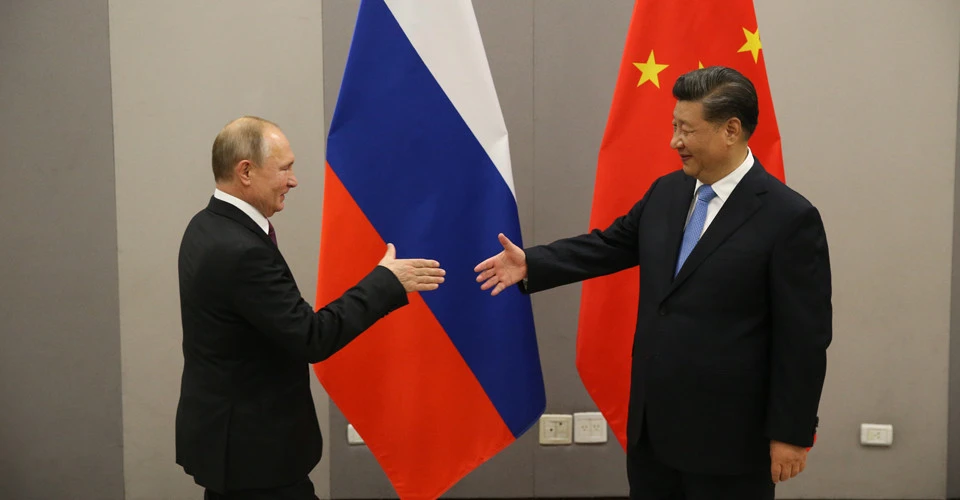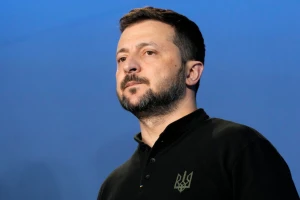
Putin’s war has not changed Сhina and Russia’s deep military ties
Chinese state-owned defense firms have maintained trade relationships with sanctioned Russian defense companies during the past year, data show
Customs records reviewed by CNN show key companies within China and Russia’s vast military-industrial complexes have maintained their years-long relationships throughout 2022, despite the war and horror Moscow has unleashed in Europe.
For instance, Beijing-based defense contractor Poly Technologies sent at least a dozen shipments – including helicopter parts and air-to-ground radio equipment – to a Russian firm sanctioned by the US for its connection to the war in Ukraine.
Poly Technology’s long-term trade partner – Ulan Ude Aviation Plant – also continued to send parts and several helicopters to the Chinese company last year, trade data show.
According to military and security experts, the components that the Chinese company shipped to Russia are very basic equipment for aircraft that were designed in Russia and may have been included in previous contracts and regular business dealings between the two parties.
But, the trade from last year highlights the long-standing contacts between significant players in both countries' state-backed defense industry, which have grown stronger over the previous ten years.
Such well-established networks, according to experts, might be exploited if Beijing wanted to offer direct, lethal support for the Kremlin's war effort.
Western politicians have recently issued warnings that Beijing is considering taking that move. Beijing has consistently defended its "regular" trade with Russia, denied this, dismissed the warning as a "smear," and opposed what it terms "unilateral" sanctions against Moscow.
Evolving partnership
The military ties between Beijing and Moscow have changed significantly since the Cold War, a time of mutual enmity and ideological conflict.
Even while there are still some differences, the two authoritarian neighbors have become closer, particularly under Putin and Xi, who together proclaimed a partnership with "no boundaries" just weeks before Russia invaded Ukraine.
That also includes strengthening security cooperation.
Putin bragged in 2021 that the two nations were "creating together certain high-tech sorts of weapons" and praised their combined military drills, which have since grown in size and range.
Military contractors with ties to the state are at the forefront of that relationship. They are being integrated into "an increasingly sophisticated supply chain," according to Alex Gabuev, a senior fellow at the international think tank Carnegie Endowment for International Peace.
Then came the Ukraine war.
A major concern for Western officials is whether existing defense ties could be used by China to supply lethal aid for the Kremlin’s war, which is widely believed to be running low on ammunition and arms.
On March 7, China’s new foreign minister Qin Gang said that China “has not provided weapons to either side” of Russia’s war, and denounced US concerns as hypocritical.
Chinese authorities are well aware of the reputational and financial harm that may result from supporting Moscow militarily, observers of Chinese foreign policy say. Many are also doubtful that Beijing would act in this way to support a nuclear-armed Russia at this time.
“Russia is losing this war in general terms … but it’s not a loss that would lead to Putin’s demise and democratization of Russia, so I don’t see reasons for China now to do more than they are doing,” said Gabuev.
Ongoing trade
The goods traded between Chinese and Russian defense firms in the data reviewed by CNN are not the munitions that Russia’s military is thought to need most one year into its Ukraine war. China is also not alone in continuing procurement from Russia at war.
When asked by CNN about the shipments from China to sanctioned Russian firms, the Chinese Ministry of Foreign Affairs said it was “unaware of the situation,” and that China “stand(s) firmly on the side of dialogue and peace.”
Two other key companies appear in the customs data – China’s AVIC International Holding, controlled by state-owned Aviation Industry Corporation of China, and Russia’s United Engine Corporation (UEC), which is part of state-owned defense giant Rostec.
Their trade involved Russian-designed jet engine parts, many of which were labeled for an engine used in Chinese fighter jets.
Shipments from AVIC International to UEC made through July last year were listed as contractual obligations under warranty, and export records show UEC shipping parts for the same engine model to China including as recently as December, according to data from Import Genius.
Several analysts have questioned if the aviation parts that are being shipped to Russia from China, many of which are marked as "used," or coming from Russia, could still be spare parts required for a country at war.
It’s also unlikely that the full picture will ever be revealed.
“Neither China nor Russia wants Western intelligence to be aware of the depth and breadth of their strategic alignment,” said Alexander Korolev, a senior lecturer in Politics and International Relations at the University of New South Wales in Australia.
If China were to supply lethal aid, Korolev added, “everything would be done to cover this up.”
“And one way to cover it up is to make it look as if it’s just a part of regular, long-term military technical cooperation – rather than a response to the war,” the expert told CNN.
- News














































